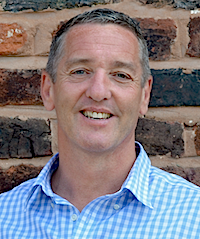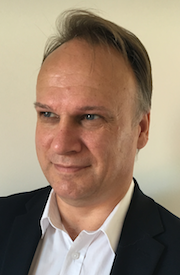Avnet has entered into an agreement to sell its Technology Solutions operating group to Tech Data for circa $2.6bn.
The transaction is expected to be significantly accretive to Tech Data's non-GAAP earnings per share in the first year after closing. Tech Data expects to achieve annual cost savings of approximately $100m within two years after closing, primarily from efficiencies related to technology platforms, as well as duplicative functions and corporate expenses.
"We believe the acquisition of Technology Solutions by Tech Data is the best decision for our employees, customers, suppliers and shareholders," said Avnet CEO William Amelio.
"This transaction presents us with the best strategic path for Avnet's future success and profitability, and puts Technology Solutions in position to achieve breakthrough business results with Tech Data.
"We will drive targeted investments in embedded solutions, Internet of Things and critical digital platforms. By investing in these high growth areas we can expand the breadth of our portfolio and attract new customers worldwide."
Avnet's Technology Solutions operating group is a global IT solutions distributor serving customers and suppliers in more than 80 countries.
Bob Dutkowsky, chief executive officer of Tech Data, added: "Tech Data has competed with and admired Avnet Technology Solutions for many years. We're thrilled to start this journey together and are confident that our customers, vendor partners, employees, and shareholders will appreciate and benefit from the value that we will bring to the market."? ?Patrick Zammit, President of the Technology Solutions business, said: "Industry standardisation, innovation and converging technologies have transformed our industry.
"The broader portfolio created through this combination will enable both businesses to better capitalise on these trends, while also providing new opportunities for Technology Solutions to optimise and expand its offering, as well as unlock value in ways we could not historically.
"Given the strength of our customer and vendor relationships, our common cultures and values, as well as the skilled and engaged teams at both businesses, I am confident that this is a winning combination."
On completion of the transaction, Avnet expects to realize a gain of $3.75 to $4.75 per share. The closing of the transaction is anticipated to occur in the first or second quarter of calendar 2017.
 ITS Technology Group has secured a £2.4m cash boost having successfully completed a round of funding that included investments from new private shareholders and the conversion of some existing shareholder loans into equity.
ITS Technology Group has secured a £2.4m cash boost having successfully completed a round of funding that included investments from new private shareholders and the conversion of some existing shareholder loans into equity.
 SMS communications business Textlocal has ramped up its UK channel ambitions following the launch of a partner programme that enables comms resellers to put text messaging at the centre of their customers' communications strategy.
SMS communications business Textlocal has ramped up its UK channel ambitions following the launch of a partner programme that enables comms resellers to put text messaging at the centre of their customers' communications strategy. A year-long campaign conducted by Nimans' Head of Network Services Mark Curtis-Wood has helped to align the distributor's mobile offering with the evolving requirements of resellers – coming to fruition with the launch of an expanded mobile services proposition.
A year-long campaign conducted by Nimans' Head of Network Services Mark Curtis-Wood has helped to align the distributor's mobile offering with the evolving requirements of resellers – coming to fruition with the launch of an expanded mobile services proposition. The launch of Gamma's business mobile service puts customer ownership, flexibility and control into the hands of resellers of converged fixed, data and mobile services, claims CEO Bob Falconer (pictured). The addition of a mobile service builds on the acquisition and development of Gamma's own core mobile network infrastructure.
The launch of Gamma's business mobile service puts customer ownership, flexibility and control into the hands of resellers of converged fixed, data and mobile services, claims CEO Bob Falconer (pictured). The addition of a mobile service builds on the acquisition and development of Gamma's own core mobile network infrastructure.